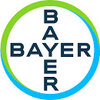Filter interviews by
SRF Interview Questions, Process, and Tips
SRF Interview Experiences
179 interviews found
I applied via Walk-in and was interviewed in Mar 2024. There was 1 interview round.
(1 Question)
- Q1. What is the Heat Rate of turbine? How is it calculated? What are the normal parameters for DCS boiler/turbine? What is the condenser capacity of your current plant? What are the steam parameters? What is the permit procedure for hot work in oil line? When the work at hight required? How anchoring on scaffolding is done?
- Ans.
The heat rate of a turbine is a measure of its efficiency in converting fuel into electricity. It is calculated by dividing the total energy input by the electricity output.
Heat rate is calculated by dividing the total energy input (in BTUs) by the electricity output (in kWh).
Normal parameters for DCS boiler/turbine include temperature, pressure, flow rates, and efficiency.
Condenser capacity is the amount of heat that ...
Interview Preparation Tips
- Powerplant calculations
- Powerplant safety
- Work Permit System
- Work permit procedure
Turbine DCS Engineer Interview Questions asked at other Companies
(2 Questions)
- Q1. How do you perform maintenance?
- Ans.
I perform maintenance by conducting regular inspections, troubleshooting issues, repairing or replacing faulty components, and documenting all work done.
Conduct regular inspections to identify potential issues
Troubleshoot problems to determine root cause
Repair or replace faulty components as needed
Document all maintenance work done for record keeping
- Q2. How much experience do you have?
- Ans.
I have 5 years of experience working as an Electrician Maintenance Technician.
5 years of experience in electrical maintenance
Skilled in troubleshooting and repairing electrical systems
Familiar with electrical codes and regulations
Experience working with various tools and equipment
Completed training in electrical safety procedures
Interview Preparation Tips
Electrician Maintenance Technician Interview Questions asked at other Companies
(1 Question)
- Q1. What do you know about distillation
- Ans.
Distillation is a process used to separate components of a liquid mixture based on their boiling points.
Distillation involves heating the liquid mixture to create vapor, then cooling the vapor to collect the separated components.
The components with lower boiling points will vaporize first and be collected as the distillate.
Common examples of distillation include the production of alcoholic beverages, purification of wa...
(1 Question)
- Q1. Tell about your family
- Ans.
I come from a close-knit family of four, including my parents and younger sister.
My parents have always been supportive of my career choices.
I have a younger sister who is currently studying in college.
We enjoy spending quality time together on weekends, going for family outings or watching movies.
Family gatherings during festivals are always a highlight for us.
(1 Question)
- Q1. Why u r change company
- Ans.
Seeking new challenges and growth opportunities in a different environment.
Looking for new challenges and opportunities for growth
Interested in gaining new skills and experiences
Seeking a better work-life balance
Want to work in a different industry or with different technologies
(2 Questions)
- Q1. Process regarding
- Q2. Safety related
(2 Questions)
- Q1. Plant hanging row material
- Q2. Team work with vehevaer
SRF interview questions for popular designations
I applied via Walk-in and was interviewed in Nov 2024. There were 2 interview rounds.
(2 Questions)
- Q1. Explain about Distillation tower.?
- Ans.
A distillation tower is a large vertical column used to separate and purify liquid mixtures based on their boiling points.
Distillation towers work on the principle of heating a liquid mixture to create vapor, then cooling the vapor to condense it back into liquid form.
The components with lower boiling points rise to the top of the tower as vapor, while those with higher boiling points remain at the bottom.
Common exampl...
- Q2. Explain about all types of control valves.?
- Ans.
Control valves are used to regulate the flow, pressure, temperature, and level of fluids in a process system.
There are several types of control valves including globe valves, butterfly valves, ball valves, and diaphragm valves.
Globe valves are commonly used for regulating flow, while butterfly valves are often used for on/off control.
Ball valves are suitable for quick shut-off applications, and diaphragm valves are ide...
(1 Question)
- Q1. About previous job role and salary structure.
Interview Preparation Tips
Junior Engineer 1 Interview Questions asked at other Companies
Get interview-ready with Top SRF Interview Questions
I applied via Job Portal and was interviewed in Oct 2024. There were 2 interview rounds.
(2 Questions)
- Q1. Why do you want to change curre।t company?
- Q2. What's your weakness?
(2 Questions)
- Q1. What is your role regarding IT infra services in last company?
- Q2. Tell me about Microsoft Power platform
- Ans.
Microsoft Power Platform is a suite of tools that allows users to analyze, act, and automate business processes.
Includes Power BI for data visualization and analysis
Includes Power Apps for building custom business applications
Includes Power Automate for automating workflows
Allows integration with other Microsoft products like Office 365 and Dynamics 365
IT Manager Interview Questions asked at other Companies
Jobs at SRF
(2 Questions)
- Q1. About centrifugal pump
- Q2. About mechanical seal
Interview Preparation Tips
Executive Engineer Mechanical Interview Questions asked at other Companies
Apti and domain knowledge
(2 Questions)
- Q1. Pump and types of pump
- Ans.
Pumps are devices used to move fluids (liquids or gases) by mechanical action. Types include centrifugal, reciprocating, and diaphragm pumps.
Centrifugal pumps use a rotating impeller to create a flow of fluid.
Reciprocating pumps use a piston or diaphragm to move fluid.
Diaphragm pumps use a flexible diaphragm to pump fluid.
Other types include gear pumps, peristaltic pumps, and vane pumps.
- Q2. Basic questions from ht, mt, fm
Top SRF Senior Executive Interview Questions and Answers
Senior Executive Interview Questions asked at other Companies
I applied via Campus Placement and was interviewed in Jul 2024. There were 3 interview rounds.
Very nice interview process
(3 Questions)
- Q1. Distillation and theory
- Q2. Pump operating system
- Ans.
The pump operating system is a crucial component in ensuring the efficient and safe operation of pumps in various industrial processes.
The pump operating system controls the start, stop, speed, and direction of pumps.
It monitors and regulates the flow rate, pressure, and temperature of the pumped fluid.
Examples of pump operating systems include variable frequency drives (VFDs), control valves, and PLCs.
Regular maintena...
- Q3. Safety Questions
(2 Questions)
- Q1. Family Background
- Q2. Behaviour and discipline
Interview Preparation Tips
- Distillation Column
- Pumps
- Centrifugal Pumps
- Compressors
- ISO
- Tank filling
Plant operator
Project commissioning
Production Engineer Interview Questions asked at other Companies
(2 Questions)
- Q1. Control valve calibration and maintenance
- Q2. PG LG TG RTD and thermocouple and instrument calibration
(2 Questions)
- Q1. Lavel transmeter calibration and install and connection
- Q2. Flow flow transmitter calibration and field side
I applied via Recruitment Consulltant and was interviewed in Jul 2024. There were 5 interview rounds.
General aptitude test
(1 Question)
- Q1. Technical questions
(1 Question)
- Q1. Hr round with vp
(1 Question)
- Q1. Interview with unit hr
(1 Question)
- Q1. Interview with business hr
Interview Preparation Tips
Assistant Manager Interview Questions asked at other Companies
Top trending discussions






SRF Interview FAQs
Some of the top questions asked at the SRF interview -
The duration of SRF interview process can vary, but typically it takes about less than 2 weeks to complete.
Recently Viewed
Tell us how to improve this page.
SRF Interviews By Designations
- SRF Junior Engineer Interview Questions
- SRF Senior Executive Interview Questions
- SRF Assistant Manager Interview Questions
- SRF Mechanical Technician Interview Questions
- SRF Production Engineer Interview Questions
- SRF Assistant Engineer Interview Questions
- SRF Manager Interview Questions
- SRF Diploma Chemical Engineer Interview Questions
- Show more
Interview Questions for Popular Designations
SRF Interview Process
based on 200 interviews
Interview experience
Interview Questions from Similar Companies
Fast track your campus placements
|
Junior Engineer
977
salaries
| ₹0 L/yr - ₹0 L/yr |
|
Senior Executive
406
salaries
| ₹0 L/yr - ₹0 L/yr |
|
Technician
187
salaries
| ₹0 L/yr - ₹0 L/yr |
|
Junior Officer
183
salaries
| ₹0 L/yr - ₹0 L/yr |
|
Assistant Manager
167
salaries
| ₹0 L/yr - ₹0 L/yr |

Pidilite Industries

BASF

UPL

Bayer Crop Science Vegetable Seeds
- Home >
- Interviews >
- SRF Interview Questions
















